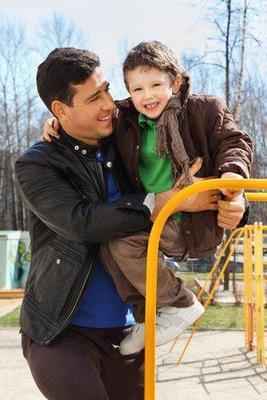Free Initial Consultations
 630-580-6373
630-580-6373With offices in Naperville, Joliet, Wheaton, Plainfield & Chicago
 For an adoption to take place, the person available to be adopted must be placed in the home of a person or persons eligible to adopt. All states have laws that specify the persons who are eligible to be adopting parents and the persons who can be adopted. In addition, there are laws that designate the persons or entities that have the authority to make adoptive placements. Contacting a qualified attorney in your state will ensure that you are aware of what lies ahead of you. Who May Adopt? In general, any single adult or a husband and wife jointly can be eligible to adopt. In addition, a stepparent can adopt the birth child of his or her spouse. But, other eligibility requirements such as age, state residency, and sexual orientation of the adoptive parents can come into play. (In the state of Illinois, the petitioners for adoption must be state residents.) Who May Be Adopted? All states allow the adoption of a child. Some states also allow the adoption of an adult, under certain circumstances. In Illinois, the adopting parent must be in a sustained relationship for a period of at least two years with the adult to be adopted. Who May Place a Child for Adoption? In general, any person or entity who has the right to make decisions about a child’s care and custody may place that child for adoption. Such persons include the birth parents or the child’s legal guardian; legal entities include state departments of social services or child-placing agencies. Non-agency placements. Most states allow non-agency placements of children for adoption, which are often referred to as private or independent adoptions. One type of private adoption allowed in most states is the direct placement of a child by the birth parent with an adoptive family. Many states that allow direct placement have detailed statutory regulations to protect the interests of the parties to the adoption. Since laws vary by state and are always being revised and added to, you should contact an Illinois family law attorney if you are seeking to adopt.
For an adoption to take place, the person available to be adopted must be placed in the home of a person or persons eligible to adopt. All states have laws that specify the persons who are eligible to be adopting parents and the persons who can be adopted. In addition, there are laws that designate the persons or entities that have the authority to make adoptive placements. Contacting a qualified attorney in your state will ensure that you are aware of what lies ahead of you. Who May Adopt? In general, any single adult or a husband and wife jointly can be eligible to adopt. In addition, a stepparent can adopt the birth child of his or her spouse. But, other eligibility requirements such as age, state residency, and sexual orientation of the adoptive parents can come into play. (In the state of Illinois, the petitioners for adoption must be state residents.) Who May Be Adopted? All states allow the adoption of a child. Some states also allow the adoption of an adult, under certain circumstances. In Illinois, the adopting parent must be in a sustained relationship for a period of at least two years with the adult to be adopted. Who May Place a Child for Adoption? In general, any person or entity who has the right to make decisions about a child’s care and custody may place that child for adoption. Such persons include the birth parents or the child’s legal guardian; legal entities include state departments of social services or child-placing agencies. Non-agency placements. Most states allow non-agency placements of children for adoption, which are often referred to as private or independent adoptions. One type of private adoption allowed in most states is the direct placement of a child by the birth parent with an adoptive family. Many states that allow direct placement have detailed statutory regulations to protect the interests of the parties to the adoption. Since laws vary by state and are always being revised and added to, you should contact an Illinois family law attorney if you are seeking to adopt.
 Even once child custody is determined, for a divorced couple who both want the best for their children, sharing schedules and determining visitation can be a challenge. This becomes all the more difficult if the custodial parent decides that he or she is going to move out of state. In some cases, a move out of state could be beneficial for the children (if the non-custodial parent consistently fails to follow through or is a threat to the ex-spouse), but in most cases moving out of state presents a whole new set of challenges for a divorced couple. In Illinois, if the custodial parent wants to leave Illinois, he or she must first go through a specific court procedure to determine if the move is indeed in the best interest of the child. No custodial parent is allowed to leave Illinois permanently without going through this procedure. In order to make this possible, according to DivorceSource.com, the first step a custodial parent must take if he or she wants to leave Illinois is to “file a petition with the court requesting permission to remove the children from the state.” From there, the court will require “psychological examinations of the parties and the children (and possibly others)… and it is difficult to obtain a prompt hearing.” This means that the custodial parent will need to prepare for the move well in advance—it’s not a decision that can be made lightly and requires months of preparation. According to DivorceSource, “removal will only be approved if it is in the best interest of the children.” There are several factors that the court will consider, according to DivorceSource, which include but are not limited to:
Even once child custody is determined, for a divorced couple who both want the best for their children, sharing schedules and determining visitation can be a challenge. This becomes all the more difficult if the custodial parent decides that he or she is going to move out of state. In some cases, a move out of state could be beneficial for the children (if the non-custodial parent consistently fails to follow through or is a threat to the ex-spouse), but in most cases moving out of state presents a whole new set of challenges for a divorced couple. In Illinois, if the custodial parent wants to leave Illinois, he or she must first go through a specific court procedure to determine if the move is indeed in the best interest of the child. No custodial parent is allowed to leave Illinois permanently without going through this procedure. In order to make this possible, according to DivorceSource.com, the first step a custodial parent must take if he or she wants to leave Illinois is to “file a petition with the court requesting permission to remove the children from the state.” From there, the court will require “psychological examinations of the parties and the children (and possibly others)… and it is difficult to obtain a prompt hearing.” This means that the custodial parent will need to prepare for the move well in advance—it’s not a decision that can be made lightly and requires months of preparation. According to DivorceSource, “removal will only be approved if it is in the best interest of the children.” There are several factors that the court will consider, according to DivorceSource, which include but are not limited to:
 In addition to garnishing wages,Illinois has the authority to withhold certain services in the attempt to make parents who avoid their responsibility to pay up. For example, he or she may not be allowed to renew a driver’s license or other professional or sportsman licensing until back child support is paid.
It is estimated that if House Bill 2843 is passed, $1 million will be distributed to custodial parents. Some say this amount is small in comparison to the $3 million owed, but it is a start, according to child support advocates.
In a perfect world, both parents work together in the best interest of the child or children. Unfortunately, measures have to be in place to ensure custodial parents get help from the ex-spouse. Far too often, there is one parent raising the children. When ex spouses do not pay court ordered child support, the custodial parent may have to compensate by working longer hours, which ultimately affects the child.
If you are considering divorce or are a custodial parent who is owed back child support, get your questions answered by calling a qualified Illinois Child Support attorney. He or she will work hard to ensure your interests and your children’s interests are protected. The meet and greet consultation is free.
In addition to garnishing wages,Illinois has the authority to withhold certain services in the attempt to make parents who avoid their responsibility to pay up. For example, he or she may not be allowed to renew a driver’s license or other professional or sportsman licensing until back child support is paid.
It is estimated that if House Bill 2843 is passed, $1 million will be distributed to custodial parents. Some say this amount is small in comparison to the $3 million owed, but it is a start, according to child support advocates.
In a perfect world, both parents work together in the best interest of the child or children. Unfortunately, measures have to be in place to ensure custodial parents get help from the ex-spouse. Far too often, there is one parent raising the children. When ex spouses do not pay court ordered child support, the custodial parent may have to compensate by working longer hours, which ultimately affects the child.
If you are considering divorce or are a custodial parent who is owed back child support, get your questions answered by calling a qualified Illinois Child Support attorney. He or she will work hard to ensure your interests and your children’s interests are protected. The meet and greet consultation is free.
Image courtesy of Boians Cho Joo Young at Freedigitalphotos.net
A bill (HB 1452) being proposed in the Illinois legislature would make significant changes to Illinois’ divorce laws. To be clear, reformation of Illinois family law is long overdue. Fortunately, the proposed changes are the result of four years of bipartisan research, debate and input, and they reflect pragmatic approaches from professionals, including national and local family law experts, family law advocates, judges and family law attorneys, as well as the public. The proposed changes will ensure that the new law will reflect cultural shifts that have occurred during the past decades in Illinois and the United States. The purpose of the changes is both to eliminate abuses and to simplify what has become a burdensome and expensive process.  Among other things, the proposed changes would abolish the requirement that divorcing parties have grounds before they can file for divorce. This arcane notion is a remnant of a time long gone. Numerous states have done away with it completely, and Illinois may soon follow suit. The proposed changes would also shorten the time that it takes to obtain a divorce judgment, which is good news for couples and children whose life is in limbo until the divorce is final. The proposed changes would also amend the child support guidelines to take into account both parents’ income, as well as the amount of time each parent spends with the child when calculating child support obligation. Lastly, the proposed change would eliminate so-called “home-wrecking” lawsuits, which are lawsuits used to punish a spouse’s lover for causing the divorce. The proposed bill was the result of hard work from the Illinois Family Law Study Committee, a bipartisan group of industry professionals that spent the last four years drafting it. These impending changes make it even more important to consult an experienced Illinois family law attorney.
Among other things, the proposed changes would abolish the requirement that divorcing parties have grounds before they can file for divorce. This arcane notion is a remnant of a time long gone. Numerous states have done away with it completely, and Illinois may soon follow suit. The proposed changes would also shorten the time that it takes to obtain a divorce judgment, which is good news for couples and children whose life is in limbo until the divorce is final. The proposed changes would also amend the child support guidelines to take into account both parents’ income, as well as the amount of time each parent spends with the child when calculating child support obligation. Lastly, the proposed change would eliminate so-called “home-wrecking” lawsuits, which are lawsuits used to punish a spouse’s lover for causing the divorce. The proposed bill was the result of hard work from the Illinois Family Law Study Committee, a bipartisan group of industry professionals that spent the last four years drafting it. These impending changes make it even more important to consult an experienced Illinois family law attorney.
The emotional toll of a divorce is not lost on anyone, and it’s no secret that anyone who’s gone through or is going through a divorce is likely to experience some financial setbacks. The trick to maintaining your finances throughout a divorce is to do some serious planning beforehand, sometimes even before you bring up the idea of divorce with your spouse. The first obvious cost to a divorce is the hiring of a qualified divorce attorney—which each spouse will need to do. “Nonetheless,” according to US News and World Report, “people can save a lot on legal fees if the case requires less ‘discovery’ work—meaning clients gather the necessary financial documents on their own time, rather than leaving it to their attorney.” This, of course, means knowing which documents are necessary to search for, and where to look if you’re unsure.  One major way to save on the financial burden of divorce is to attempt to find a middle grounds with your ex and “consider aiming for an uncontested divorce,” according to US News and World Report. This means providing mandatory disclosures, which “require both parties to produce a large number of financial documents.” A divorce attorney can help you to determine which of these documents you’ll need, and may be able to help you obtain them if necessary. The financial documents you’ll need for a divorce are not few in number, and the search for them can “prove overwhelming… especially if you are a stranger to your financial situation,” according to US News and World Report. This can sometimes affect women more often than men, which means that a woman going through a divorce will need to be even more financially aware, especially if she was not the primary earner. To begin the arduous process of organizing your financials during a divorce, the most important first task is to hire a qualified family law attorney. If you or someone you know is considering divorce, don’t go through it alone. Contact a dedicated DuPage County divorce lawyer today.
One major way to save on the financial burden of divorce is to attempt to find a middle grounds with your ex and “consider aiming for an uncontested divorce,” according to US News and World Report. This means providing mandatory disclosures, which “require both parties to produce a large number of financial documents.” A divorce attorney can help you to determine which of these documents you’ll need, and may be able to help you obtain them if necessary. The financial documents you’ll need for a divorce are not few in number, and the search for them can “prove overwhelming… especially if you are a stranger to your financial situation,” according to US News and World Report. This can sometimes affect women more often than men, which means that a woman going through a divorce will need to be even more financially aware, especially if she was not the primary earner. To begin the arduous process of organizing your financials during a divorce, the most important first task is to hire a qualified family law attorney. If you or someone you know is considering divorce, don’t go through it alone. Contact a dedicated DuPage County divorce lawyer today.
Domestic violence is “a pattern of behaviors utilized by one partner (the abuser or batterer) to exert and maintain control over another person (the survivor or victim) where there exists an intimate, loving and dependent relationship”, according to the National Coalition of Anti-Violence Programs.  Although domestic violence is often defined as heterosexual women’s problem, they are not the only victims of abusive behavior. Domestic violence has been observed in many kinds of relationships, including same-gender relationships. In domestic violence, the violent spouse uses different types of abusive behavior to gain the sole control of the relationship. The victim cannot make independent decisions without suffering consequences from the violent spouse which leads to constant fear and anxiety. The abuser tries to isolate the victim and prevents them from getting help. Not all abusive relationships are necessarily similar. The behavior of the abuser and the tools of abuse he or she uses to gain and maintain control in the relationship determine the type of the abusive relationship. However, there are some general tendencies how violent spouses abuse their partners or children. These can be, for example, some of the following behaviors:
Although domestic violence is often defined as heterosexual women’s problem, they are not the only victims of abusive behavior. Domestic violence has been observed in many kinds of relationships, including same-gender relationships. In domestic violence, the violent spouse uses different types of abusive behavior to gain the sole control of the relationship. The victim cannot make independent decisions without suffering consequences from the violent spouse which leads to constant fear and anxiety. The abuser tries to isolate the victim and prevents them from getting help. Not all abusive relationships are necessarily similar. The behavior of the abuser and the tools of abuse he or she uses to gain and maintain control in the relationship determine the type of the abusive relationship. However, there are some general tendencies how violent spouses abuse their partners or children. These can be, for example, some of the following behaviors:
Divorce is never easy. If you and your soon-to-be ex have children, divorce is even more complicated. Not only are you dealing with your and your spouse’s emotions, there’s the well being of the kids to take into consideration. If the divorce is amicable—which, let’s face it, it rarely is—deciding to share custody of your children is the obvious answer. Yet even if the divorce is less than friendly, research shows that deciding on joint custody is the best option for children. According to a report published in the American Psychological Association (APA), “children from divorced families who either live with both parents at different times or spend certain amounts of time with each parent are better adjusted in most cases than children who live and interact with just one parent.” This, of course, takes into consideration visitation rights as well as custody, but it should be noted that the more time a child spends with both parents, the better off he or she will be.  “Children in joint custody arrangements had less behavior and emotional problems, had higher self-esteem, better family relations and school performance than children in sole custody arrangements,” according to the APA. The perception that a joint custody arrangement could be damaging to children because it has the potential to expose children to ongoing parental conflict is just not true, according to the report. According to Parents magazine, there’s some important framework to consider if you’re embarking on a joint custody arrangement. This includes setting up a routine for your child or children, that “accommodates both parents’ schedules and serves the best interest of the child.” This includes holiday arrangements. Another tip from Parents magazine is to “leave young children out of negotiations, and present your decision matter-of-factly.” In order to be fair to both parents, try to make weekday and weekend time for both parents, so that one parent doesn’t end up being the “fun” one, while the other is responsible for more of the day-to-day. Determining child custody is only one complicated matter of family law and divorce. If you or someone you know is considering divorce, don’t go through it alone. Contact a dedicated Illinois family law attorney today. Image courtesy of Mindy McGregor / FreeDigitalPhotos.net
“Children in joint custody arrangements had less behavior and emotional problems, had higher self-esteem, better family relations and school performance than children in sole custody arrangements,” according to the APA. The perception that a joint custody arrangement could be damaging to children because it has the potential to expose children to ongoing parental conflict is just not true, according to the report. According to Parents magazine, there’s some important framework to consider if you’re embarking on a joint custody arrangement. This includes setting up a routine for your child or children, that “accommodates both parents’ schedules and serves the best interest of the child.” This includes holiday arrangements. Another tip from Parents magazine is to “leave young children out of negotiations, and present your decision matter-of-factly.” In order to be fair to both parents, try to make weekday and weekend time for both parents, so that one parent doesn’t end up being the “fun” one, while the other is responsible for more of the day-to-day. Determining child custody is only one complicated matter of family law and divorce. If you or someone you know is considering divorce, don’t go through it alone. Contact a dedicated Illinois family law attorney today. Image courtesy of Mindy McGregor / FreeDigitalPhotos.net
